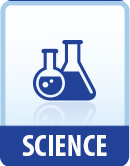|
This section contains 1,313 words (approx. 5 pages at 300 words per page) |

|
Overview
After centuries of struggling to preserve the most basic elements of scholarship and literacy, in the tenth century European scholars became aware of the vast storehouse of knowledge held in the Islamic world. Between the eleventh and thirteenth centuries, much of this Arabic knowledge, including earlier Greek works of science, medicine, and philosophy, was translated into Latin and transmitted to European centers of learning.
Background
Beginning with the Crusades, European scholars learned of the advanced state of Arabic scholarship and the impressive collections of Greek works held within Islamic lands. Works by Aristotle (384-322 B.C.), Hippocrates (460?-377? B.C.), and Ptolemy (second century A.D.), unknown in Europe for centuries, had been carefully preserved, studied, and enhanced by Islamic scholars. In particular, Islamic studies of astronomy, mathematics, and medicine far exceeded anything known in...
|
This section contains 1,313 words (approx. 5 pages at 300 words per page) |

|


